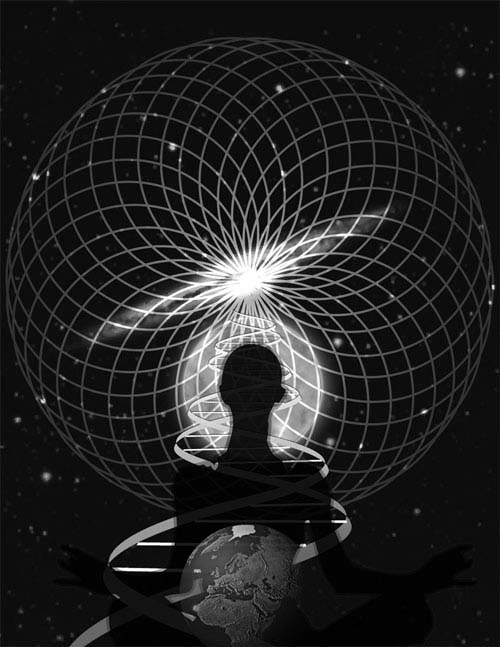

We exist in a matrix, simulation, hologram, or virtually programmed reality that we believe is real because our brains tell us it is.
Consciousness is all and everything in the virtual simulation of our experiences brought into awareness by the brain - an electrochemical machine forever viewing streaming codes for experience and interpretation.
The human biogenetic experiment is consciousness brought forth into the physical by the patterns of sacred geometry that repeat in cycles called Time. It's all binary codes - ones and zeros - creating patterns that the matrix of our brain can interpret as real and having meaning.
Rene Descartes said, "Cogito, ergo sum" -- "I think, therefore I am." He was correct.
Consciousness may involve thoughts, sensations, perceptions, moods, emotions, dreams, and self-awareness. It is variously seen as a type of mental state, a way of perceiving, or a relationship between self and other. It has been described as a point of view, an I, or what Thomas Nagel called the existence of "something that it is like" to be something.
Many philosophers have seen consciousness as the most important thing in the universe. On the other hand, many scientists have seen the word as too nebulous in meaning to be useful.
Consciousness is the subject of much research in philosophy of mind, psychology, neuroscience, cognitive science, and artificial intelligence. Issues of practical concern include how the presence of consciousness can be assessed in severely ill or comatose people; whether non-human consciousness exists and if so how it can be measured; at what point in fetal development consciousness begins; and whether computers can achieve conscious states.
In common parlance, consciousness sometimes also denotes being awake and responsive to the environment, in contrast to being asleep or in a coma.
Consciousness is a term that refers to the relationship between the mind and the world with which it interacts. It has been defined as: subjectivity, awareness, the ability to experience or to feel, wakefulness, having a sense of selfhood, and the executive control system of the mind. Despite the difficulty in definition, many philosophers believe that there is a broadly shared underlying intuition about what consciousness is. As Max Velmans and Susan Schneider wrote in The Blackwell Companion to Consciousness: "Anything that we are aware of at a given moment forms part of our consciousness, making conscious experience at once the most familiar and most mysterious aspect of our lives." Read more ...
Mysterianism is a philosophical position proposing that the hard problem of consciousness cannot be resolved by humans. The unresolvable problem is how to explain the existence of qualia (individual instances of subjective, conscious experience). In terms of the various schools of philosophy of mind, mysterianism is a form of nonreductive physicalism. Some "mysterians" state their case uncompromisingly. Colin McGinn has said that consciousness is a mystery that human intelligence will never unravel. Others believe that consciousness is not within the grasp of present human understanding, but may be comprehensible to future advances of science and technology. Read more
World's Smartest Physicist Thinks Science Can't Crack Consciousness Scientific American - August 18, 2016
String theorist Edward Witten says consciousness will remain a mystery. Some mind-ponderers, notably philosopher Colin McGinn, argue that consciousness is unsolvable. Philosopher Owen Flanagan calls these pessimists mysterians, after the 60's-era rock group Question Mark and the Mysterians. Recently, physicist Edward Witten came out as a mysterian. Witten is regarded with awe by his fellow physicists, some of whom have compared him to Einstein and Newton. He is largely responsible for the popularity of string theory over the past several decades. String theory holds that all of nature's forces stem from infinitesimal particles wriggling in a hyperspace consisting of many extra dimensions.
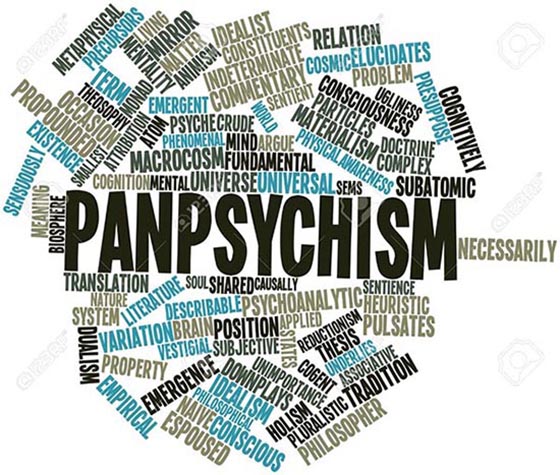
Why Panpsychism Is Probably Wrong The Atlantic - September 20, 2016
Is consciousness everywhere? Is it a basic feature of the universe, at the very heart of the tiniest subatomic particles? Such an idea - panpsychism as it is known - might sound like New-Age mysticism, but some hard-nosed analytic philosophers have suggested it might be how things are, and it's now a hot topic in philosophy of mind. Panpsychism's popularity stems from the fact that it promises to solve two deep problems simultaneously.
The first is the famous hard problem of consciousness. How does the brain produce conscious experience? How can neurons firing give rise to experiences of color, sound, taste, pain and so on? In principle, scientists could map my brain processes in complete detail but, it seems, they could never detect my experiences themselves - the way colors look, pain feels and so on: the phenomenal properties of the brain states involved. Somehow, it seems, brain processes acquire a subjective aspect, which is invisible to science. How can we possibly explain this? The second problem concerns an apparent gap in our scientific picture of the world.
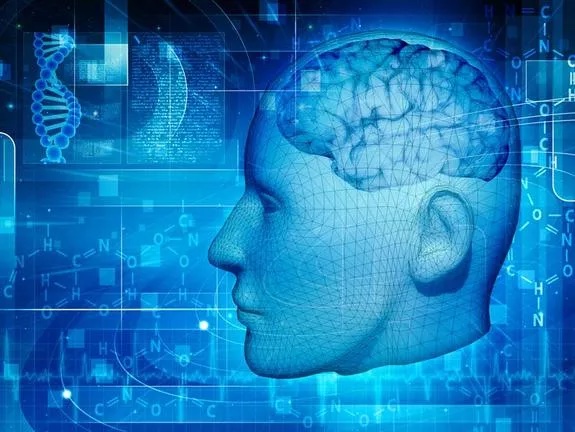
Are humans living in a simulation? Is consciousness nothing more than the firing of neurons in the brain? Or is consciousness a distinct entity that permeates every speck of matter in the universe? The answer to the question "what is consciousness" could have implications for the future of artificial intelligence (AI) and far-out concepts like mind uploading and virtual immortality.
Panpsychism is the view that consciousness, mind or soul (psyche) is a universal and primordial feature of all things. Panpsychists see themselves as minds in a world of minds.
This Rare State of Sleep Could Reveal Secrets of Consciousness Science Alert - September 1, 2025
For some people, sleep brings a peculiar kind of wakefulness. Not a dream, but a quiet awareness with no content. This lesser-known state of consciousness may hold clues to one of science's biggest mysteries: what it means to be conscious.
It's because Time is an illusion and is only linear in physical reality. ~ Ellie
Altered States of Consciousness Can Distort Time, And Nobody Knows Why Science Alert - January 5, 2025

Time also seems to pass slowly when we are bored, or in pain. It seems to speed up when we're in a state of absorption, such as when we play music or chess, or paint or dance. More generally, most people report time seems to speed up as they get older. However, these variations in time perception are quite mild. Our experience of time can change in a much more radical way. In my new book, I describe what I call "time expansion experiences" - in which seconds can stretch out into minutes.
Quantum Entanglement in Neurons May Actually Explain Consciousness. Science Alert - August 9, 2024

A silent symphony is playing inside your brain right now as neurological pathways synchronize in an electromagnetic chorus that's thought to give rise to consciousness. Yet how various circuits throughout the brain align their firing is an enduring mystery, one some theorists suggest might have a solution that involves quantum entanglement.
5-Year Search For The Source of Consciousness Ends. The meeting overall showed we're still a long way from working out the source of consciousness in the human brain Science Alert - June 27, 2023
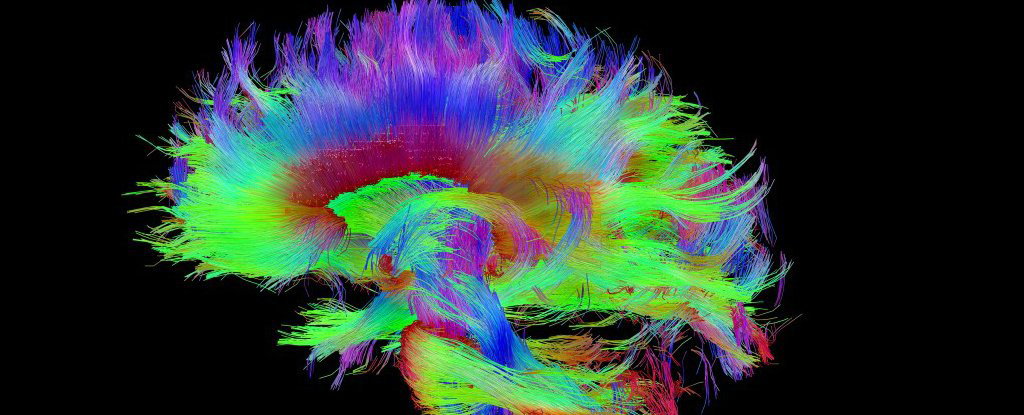
The challenge is using tools of science - such as experimentation, replication, and reasoning - to relate objective measures of cells and chemistry to subjective accounts of agency and awareness. All while respecting the ethics of experimenting on the human mind.
In a world where AI's impact is growing, exactly what is consciousness? Medical Express - May 2, 2023
![]()
Rumors of artificial intelligence becoming sentient abound. In July of 2022, a Google engineer claimed that an AI chatbot he was working with had become self-aware. The same AI recently passed the Turing Test, once considered the gold standard for determining if something was human. Uncertainty about consciousness also extends into the animal kingdom. The U.K. recently declared that octopuses, lobsters and crabs were sentient. Dolphins have demonstrated self-awareness. This is all complicated by the fact that we still don't exactly know what human consciousness is. Science still can't explain it.
Researcher offers new explanation for consciousness Medical Express - October 4, 2022
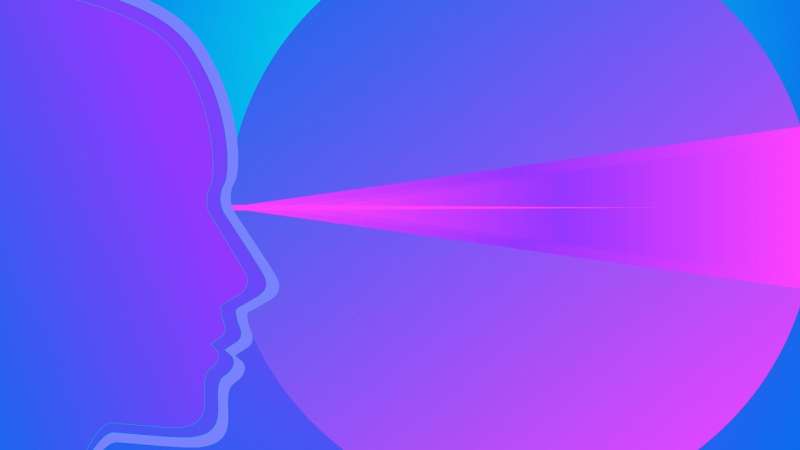
Consciousness is your awareness of yourself and the world around you. This awareness is subjective and unique to you. Consciousness developed as a memory system that is used by our unconscious brain to help us flexibly and creatively imagine the future and plan accordingly. What is completely new about this theory is that it suggests we don't perceive the world, make decisions, or perform actions directly. Instead, we do all these things unconsciously and then - about half a second later - consciously remember doing them.
Is consciousness continuous or discrete? Maybe it's both, argue researchers Medical Express - September 3, 2020
Two major theories have fueled a now 1,500 year-long debate started by Saint Augustine: Is consciousness continuous, where we are conscious at each single point in time, or is it discrete, where we are conscious only at certain moments of time? In an Opinion published in the journal Trends in Cognitive Sciences, psychophysicists answer this centuries-old question with a new model, one that combines both continuous moments and discrete points of time.
How Does Consciousness Arise in the Brain? Live Science - February 7, 2019
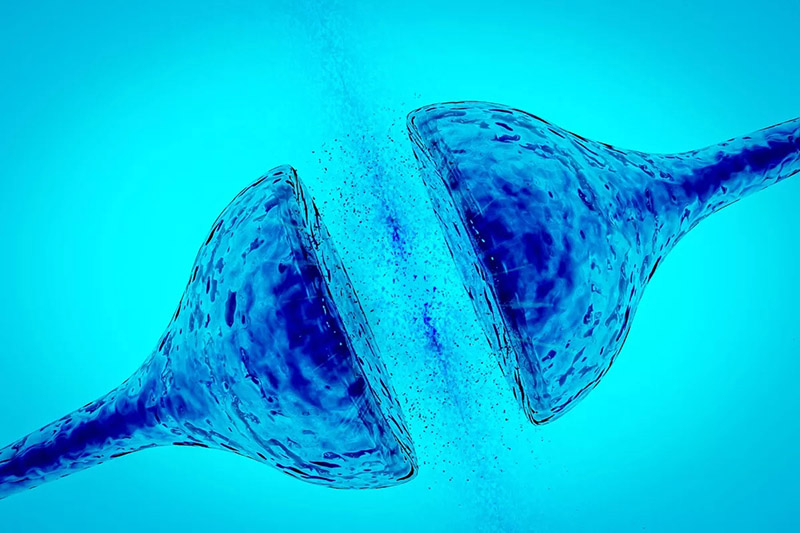
Humans have learned to travel through space, eradicate diseases and understand nature at the breathtakingly tiny level of fundamental particles. Yet we have no idea how consciousness - our ability to experience and learn about the world in this way and report it to others - arises in the brain. In fact, while scientists have been preoccupied with understanding consciousness for centuries, it remains one of the most important unanswered questions of modern neuroscience. Now a new study sheds light on the mystery by uncovering networks in the brain that are at work when we are conscious. It's not just a philosophical question. Determining whether a patient is "aware" after suffering a severe brain injury is a huge challenge both for doctors and families who need to make decisions about care. Modern brain imaging techniques are starting to lift this uncertainty, giving us unprecedented insights into human consciousness.
Bodily sensations give rise to conscious feelings Medical Express - August 29, 2018
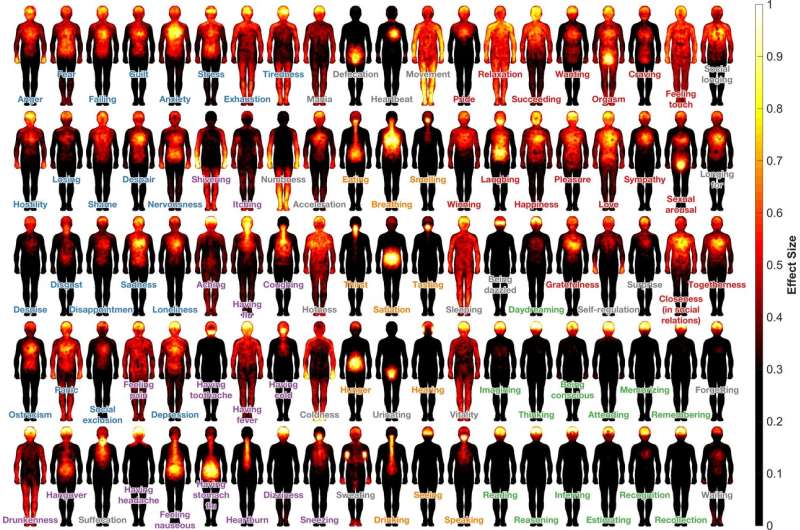
Humans constantly experience an ever-changing stream of subjective feelings that is only interrupted during sleep and deep unconsciousness. Finnish researches show how the subjective feelings map into five major categories: positive emotions, negative emotions, cognitive functions, somatic states, and illnesses. All these feelings were imbued with strong bodily sensations. These results show that conscious feelings stem from bodily feedback. Although consciousness emerges due to brain function and we experience our consciousness to be "housed" in the brain, bodily feedback contributes significantly to a wide variety of subjective feelings.
Is the Universe Conscious? NBC - June 16, 2017
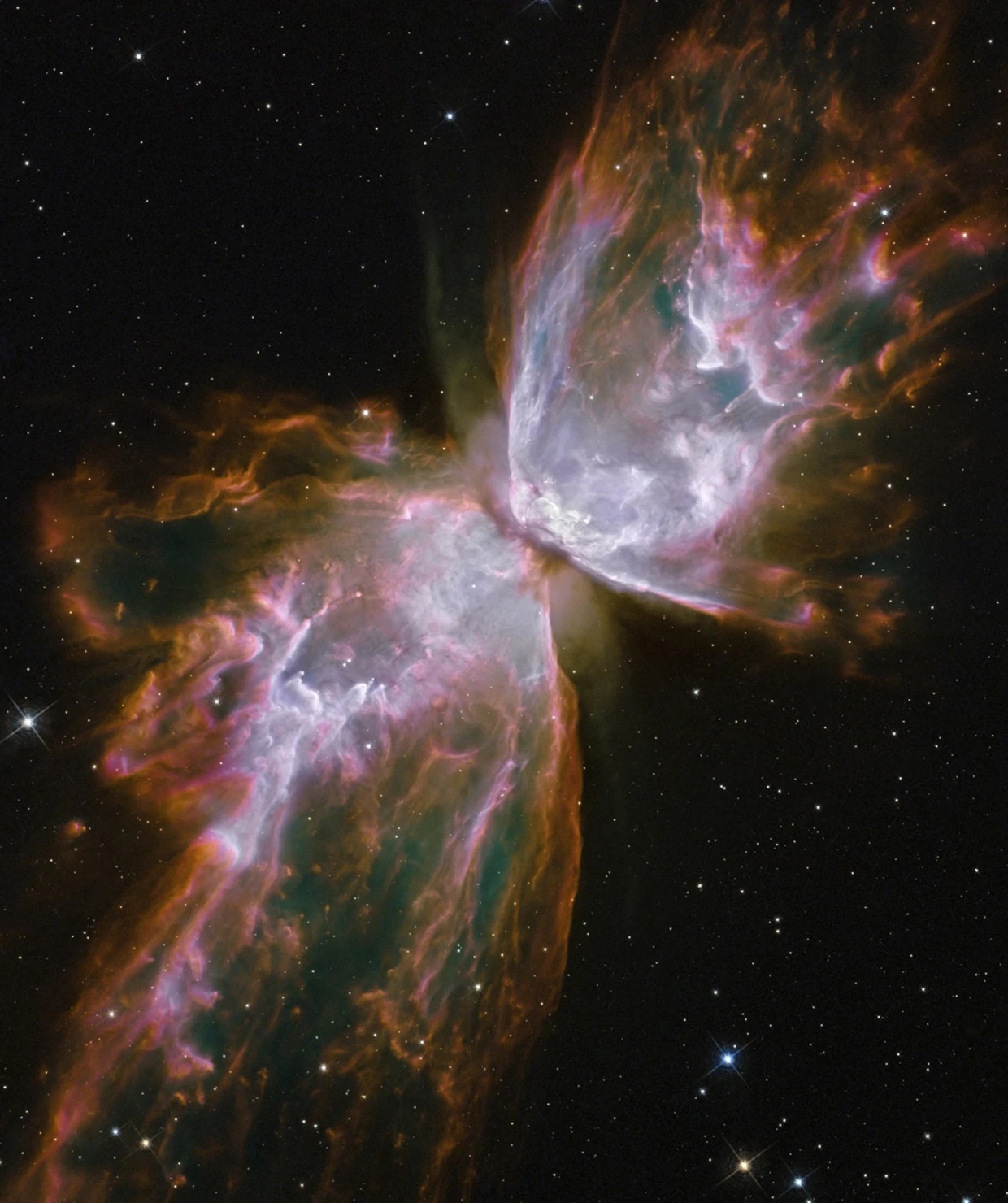
Some of the world's most renowned scientists are questioning whether the universe is a living entity that can think and feel and move at will. For centuries, modern science has been shrinking the gap between humans and the rest of the universe, from Isaac Newton showing that one set of laws applies equally to falling apples and orbiting moons to Carl Sagan intoning that 'we are made of star stuff' - that the atoms of our bodies were literally forged in the nuclear furnaces of other stars.
Is consciousness just an illusion? BBC - April 4, 2017
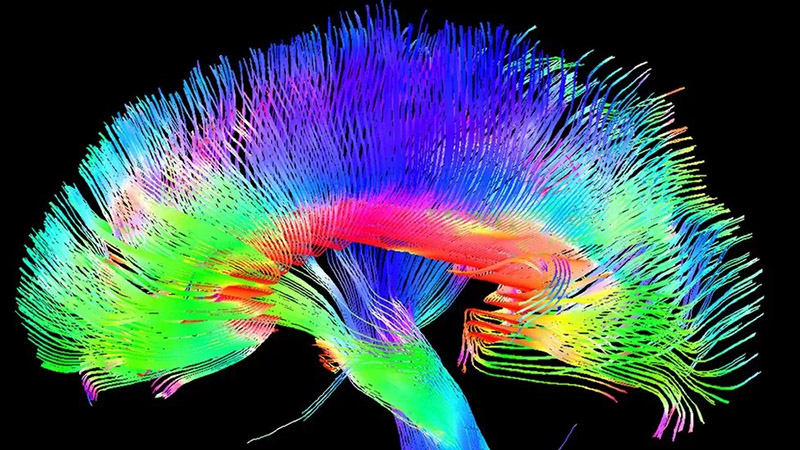
Daniel Dennett has always believed our minds are machines. For him the question is not can computers be human? But are humans really that clever? Intuition is simply knowing something without knowing how you got there. Our minds are made of molecular machines, otherwise known as brain cells.. Our minds are made of molecular machines, otherwise known as brain cells.
Neurobiologists program a neural network for analyzing the brain's wiring Medical Express - February 28, 2017
How does consciousness arise? Researchers suspect that the answer to this question lies in the connections between neurons. Unfortunately, however, little is known about the wiring of the brain. This is due also to a problem of time: tracking down connections in collected data would require man-hours amounting to many lifetimes, as no computer has been able to identify the neural cell contacts reliably enough up to now. Scientists plan to change this with the help of artificial intelligence. They have trained several artificial neural networks and thereby enabled the vastly accelerated reconstruction of neural circuits.
What Is Consciousness? Physicists Look for Answers Live Science - December 13, 2016
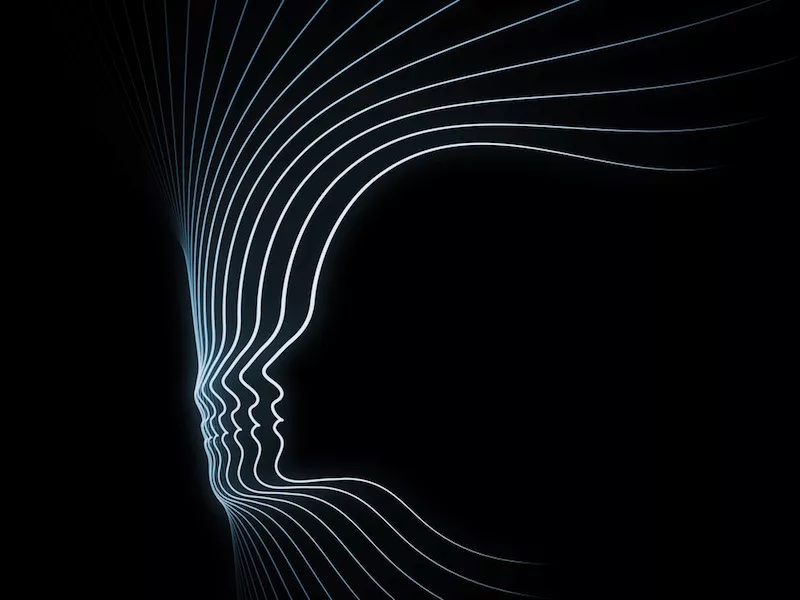
Renowned physicist Edward Witten recently suggested that consciousness might forever remain a mystery. But his words haven't discouraged other physicists from trying to unravel it. Yes, physicists. In the past, consciousness was almost entirely relegated to the musings of philosophers; it was too ethereal to be studied materially. But as science advanced, so too did our ability to examine the wispy intricacies of the waking mind. Biologists joined the pursuit, followed by neuroscientists with brain scanners in tow. It was only recently that select physicists shifted their attentions from concepts like the Big Bang, quantum information, and electrodynamics and instead began tendering their two cents on consciousness.
Complex ideas can enter consciousness automatically Science Daily - April 14, 2016
New research provides further evidence for 'passive frame theory,' the groundbreaking idea that suggests human consciousness is less in control than previously believed. The study shows that even complex concepts, such as translating a word into pig latin, can enter your consciousness automatically, even when someone tells you to avoid thinking about it. The research provides the first evidence that even a small amount of training can cause unintentional, high-level symbol manipulation.
How the brain produces consciousness in 'time slices' Science Daily - April 12, 2016
Scientists propose a new way of understanding of how the brain processes unconscious information into our consciousness. According to the model, consciousness arises only in time intervals of up to 400 milliseconds, with gaps of unconsciousness in between. The driver ahead suddenly stops, and you find yourself stomping on your breaks before you even realize what is going on. We would call this a reflex, but the underlying reality is much more complex, forming a debate that goes back centuries: Is consciousness a constant, uninterrupted stream or a series of discrete bits - like the 24 frames-per-second of a movie reel?
Scientists Closing in on Theory of Consciousness Live Science - July 30, 2014
Probably for as long as humans have been able to grasp the concept of consciousness, they have sought to understand the phenomenon. Studying the mind was once the province of philosophers, some of whom still believe the subject is inherently unknowable. But neuroscientists are making strides in developing a true science of the self. Here are some of the best contenders for a theory of consciousness.
Global workspace: Another promising theory suggests that consciousness works a bit like computer memory, which can call up and retain an experience even after it has passed.
Cogito ergo sum: The 17th century French philosopher René Descartes proposed the notion of "cogito ergo sum" ("I think, therefore I am"), the idea that the mere act of thinking about one's existence proves there is someone there to do the thinking.
Correlates of consciousness: Recently, researchers discovered a brain area that acts as a kind of on-off switch for the brain. When they electrically stimulated this region, called the claustrum, the patient became unconscious instantly.
Integrated information: Conscious experience represents the integration of a wide variety of information.
To recover consciousness, brain activity passes through newly detected states Science Daily - June 10, 2014
Anesthesia makes otherwise painful procedures possible by derailing a conscious brain, rendering it incapable of sensing or responding to a surgeon's knife. But little research exists on what happens when the drugs wear off. Research shows that recovery from deep anesthesia is not a smooth, linear process but is instead a dynamic journey with specific states of activity the brain must temporarily occupy on the way to full recovery.
Is the key to consciousness in the claustrum? PhysOrg - May 28, 2014
Consciousness is one of the most fascinating and elusive phenomena we humans face. Every single one of us experiences it but it remains surprisingly poorly understood.The main player in this story is something called the claustrum. The word originally described an enclosed space in medieval European monasteries but in the mammalian brain it refers to a small sheet of neurons just below the cortex, and possibly derived from it in brain development. The cortex is the massive folded layer on top of the brain mainly responsible for many higher brain functions such as language, long-term planning and our advanced sensory functions. Interestingly, the claustrum is strongly reciprocally connected to many cortical areas. The visual cortex (the region involved in seeing) sends axons (the connecting "wires" of the nervous system) to the claustrum, and also receives axons from the claustrum.
Could Quantum Brain Effects Explain Consciousness? Live Science - June 27, 2013
The idea that consciousness arises from quantum mechanical phenomena in the brain is intriguing, yet lacks evidence, scientists say. Physicist Roger Penrose proposes that the brain acts as a quantum computer - a computational machine that makes use of quantum mechanical phenomena (like the ability of particles to be in two places at once) to perform complex calculations. In the brain, fibers inside neurons could form the basic units of quantum computation. The idea is appealing, because neuroscience, so far, has no satisfactory explanation for consciousness - the state of being self-aware and having sensory experiences and thoughts. But many scientists are skeptical, citing a lack of experimental evidence for the idea.
